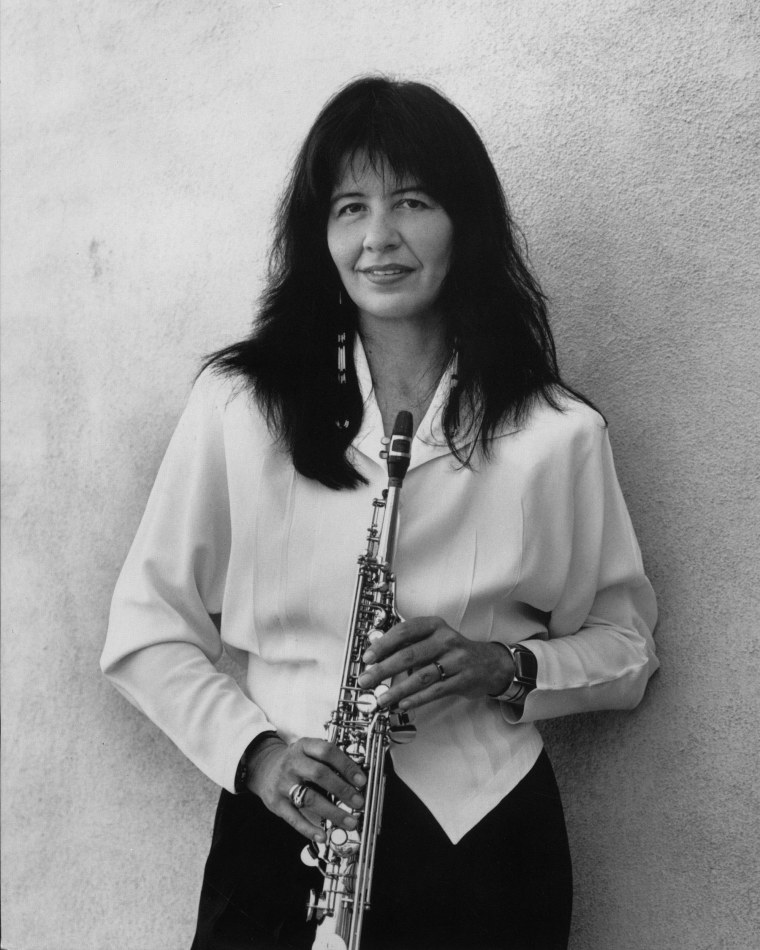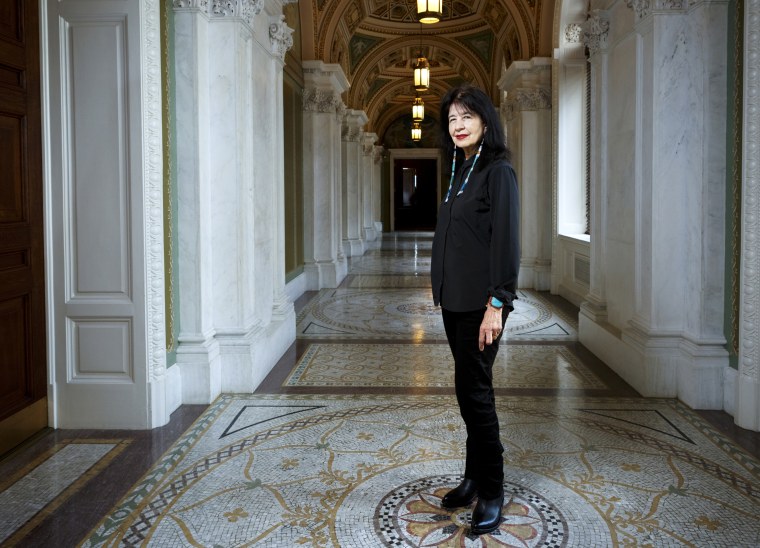The Library of Congress appointed the award-winning poet and musician Joy Harjo, whose verse invokes tradition, politics and personal memoir to celebrate the quest for freedom, as the first Native American poet laureate of the United States on Wednesday.
Harjo, 68, succeeds Tracy K. Smith as the library's 23rd poet laureate consultant in poetry.
"Joy Harjo has championed the art of poetry — 'soul talk' as she calls it — for over four decades," Librarian of COngress Carla Hayden said in announcing Harjo's appointment.
"To her, poems are 'carriers of dreams, knowledge and wisdom,' and through them she tells an American story of tradition and loss, reckoning and myth-making," Hayden said. "Her work powerfully connects us to the earth and the spiritual world with direct, inventive lyricism that helps us reimagine who we are."
Harjo, an enrolled member of the Muscogee (Creek) Nation who was born in Oklahoma, called the appointment a "tremendous honor."
In an interview with the American Academy of Poets on Wednesday, Harjo said her tenure as poet laureate would "have a lot to do with Native poets, Native nations' poets."
"But it's also about American poetry and American voices, which is really how we sing the American story, and that involves all of the voices," she said.
Harjo's poetry features Native symbolism, imagery and history to address feminist and other social issues. In "Running," published last year in The New Yorker, she wrote, in part:
The lights quiver,
Like they do when the power’s dwindling to a dangling string.
It is time to go home. We are herded like stoned cattle, like children for the bombing drill—
Out the door, into the dark street of this old Indian town
Where there are no Indians anymore.
I was afraid of the dark, because then I could see
Everything. The truth with its eyes staring
Back at me. The mouth of the dark with its shiny moon teeth,
No words, just a hiss and a snap.
I could hear my heart hurting
With my in-the-dark ears.

A widely admired saxophonist, Harjo has also performed with the bands Poetic Justice and Arrow Dynamics. She has also released four albums of original music, one of which, "Red Dreams, A Trail Beyond Tears," won the Native American Music Award for best female artist of the year in 2009.
Harjo was a founding board member of the Native Arts and Cultures Foundation, a nonprofit institution that advocates for and promotes Native and tribal artist projects, and still serves as a board member.
Among many other honors, Harjo was awarded the American Book Award for her 1990 volume, "In Mad Love and War," which plumbed the history of violence in Native communities and the obstacles for Native Americans today. Her 2012 memoir, "Crazy Brave," won another American Book Award and the PEN Center USA prize for creative nonfiction.
D.A. Powell, the National Book Critics Circle Award-winning poet, welcomed Harjo's appointment on Wednesday, writing on Twitter: "Joy Harjo serving as the new U.S. poet laureate might be the first thing to happen in Washington, D.C., this year that actually makes sense."
